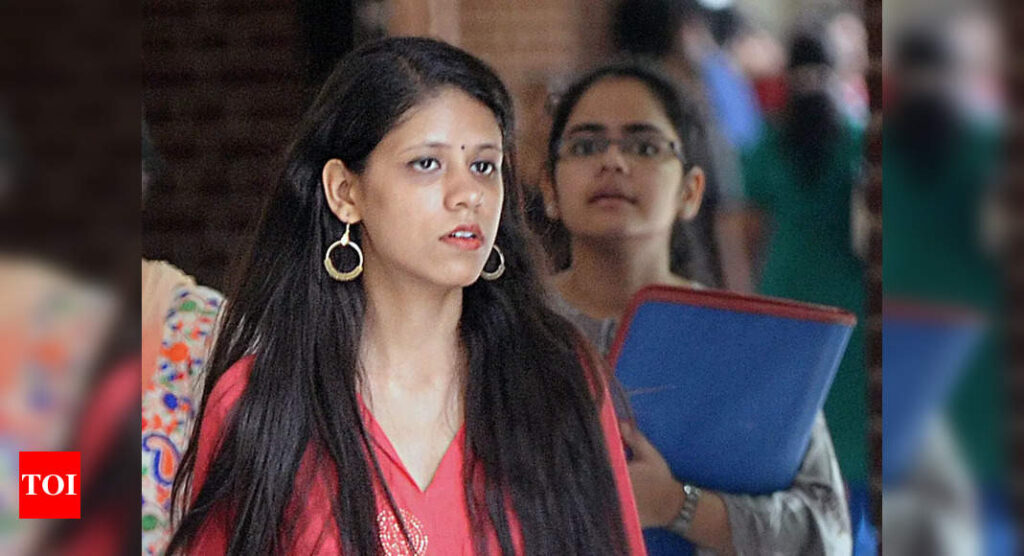By Aditya Wadhawan
The colleges would need to bring in a culture of gender sensitisation on their campuses
The University Grants Commission (UGC) has directed colleges and universities to implement the new guidelines for gender champions to increase gender sensitization and equality on campuses.
Under this, the universities will have to appoint student representatives as gender champions who would oversee the success process of this initiative in their respective colleges. The gender champion can be a boy, girl, or transgender student above 16.
The Students Federation of India (SFI) recently organized a pride walk at the University of Delhi (DU) to advocate progressive and inclusive campuses. Also, in October last year, the Madras High Court gave the verdict that transgenders are entitled to a special reservation as third gender for admission to post-basic (nursing) and post-basic diploma in psychiatry nursing courses.
Speaking to Education Times, Prof Manish Ratnakar Joshi, secretary, UGC, says, “We have directed the universities and colleges to implement the guidelines for ‘gender champions’ so that students get sensitised towards different genders. The effective implementation of these guidelines would ensure women’s empowerment and the acceptance of transgender students in HEIs. These guidelines would ensure that an inclusive educational ecosystem is developed, and a conducive environment to study is created for all the students. We have taken this decision after due consultation with the Education Ministry and it is in sync with the objective of Article 15 which calls for gender equality.”
NEP 2020 advocates that the overall Gross Enrollment Ratio (GER) in the country should reach 50% by 2035, which is around 27-28%. “A cordial environment for gender sensitisation would be instrumental in increasing the GER to the desired level by 2035,” says Joshi.
A transgender student in DU on the condition of anonymity, says, “It is a progressive initiative taken by UGC as it would enhance the assimilation of the transgender students on the college campuses.” The student, who just wrote her final exams for Maths (Hons) hails from a small town in UP. While participating in dance competitions, the student felt awkward due to the unwanted glances from fellow students. “My dance style was different from other students. Initially, I did face challenges in acclimatising with other students in college and felt a bit alienated, but gradually the situation changed for good when they accepted me as I am.”
“During my entire graduation, I felt that students of the Humanities stream were more sensitive about gender equality. In the last semester, a gender sensitisation workshop was conducted in our college to help students clear the misconception about us. The gender champions will further help the students understand diversity and inclusivity better,” says the student.
The colleges would need to bring in a culture of gender sensitisation on their campuses
The University Grants Commission (UGC) has directed colleges and universities to implement the new guidelines for gender champions to increase gender sensitization and equality on campuses.
Under this, the universities will have to appoint student representatives as gender champions who would oversee the success process of this initiative in their respective colleges. The gender champion can be a boy, girl, or transgender student above 16.
The Students Federation of India (SFI) recently organized a pride walk at the University of Delhi (DU) to advocate progressive and inclusive campuses. Also, in October last year, the Madras High Court gave the verdict that transgenders are entitled to a special reservation as third gender for admission to post-basic (nursing) and post-basic diploma in psychiatry nursing courses.
Speaking to Education Times, Prof Manish Ratnakar Joshi, secretary, UGC, says, “We have directed the universities and colleges to implement the guidelines for ‘gender champions’ so that students get sensitised towards different genders. The effective implementation of these guidelines would ensure women’s empowerment and the acceptance of transgender students in HEIs. These guidelines would ensure that an inclusive educational ecosystem is developed, and a conducive environment to study is created for all the students. We have taken this decision after due consultation with the Education Ministry and it is in sync with the objective of Article 15 which calls for gender equality.”
NEP 2020 advocates that the overall Gross Enrollment Ratio (GER) in the country should reach 50% by 2035, which is around 27-28%. “A cordial environment for gender sensitisation would be instrumental in increasing the GER to the desired level by 2035,” says Joshi.
A transgender student in DU on the condition of anonymity, says, “It is a progressive initiative taken by UGC as it would enhance the assimilation of the transgender students on the college campuses.” The student, who just wrote her final exams for Maths (Hons) hails from a small town in UP. While participating in dance competitions, the student felt awkward due to the unwanted glances from fellow students. “My dance style was different from other students. Initially, I did face challenges in acclimatising with other students in college and felt a bit alienated, but gradually the situation changed for good when they accepted me as I am.”
“During my entire graduation, I felt that students of the Humanities stream were more sensitive about gender equality. In the last semester, a gender sensitisation workshop was conducted in our college to help students clear the misconception about us. The gender champions will further help the students understand diversity and inclusivity better,” says the student.

